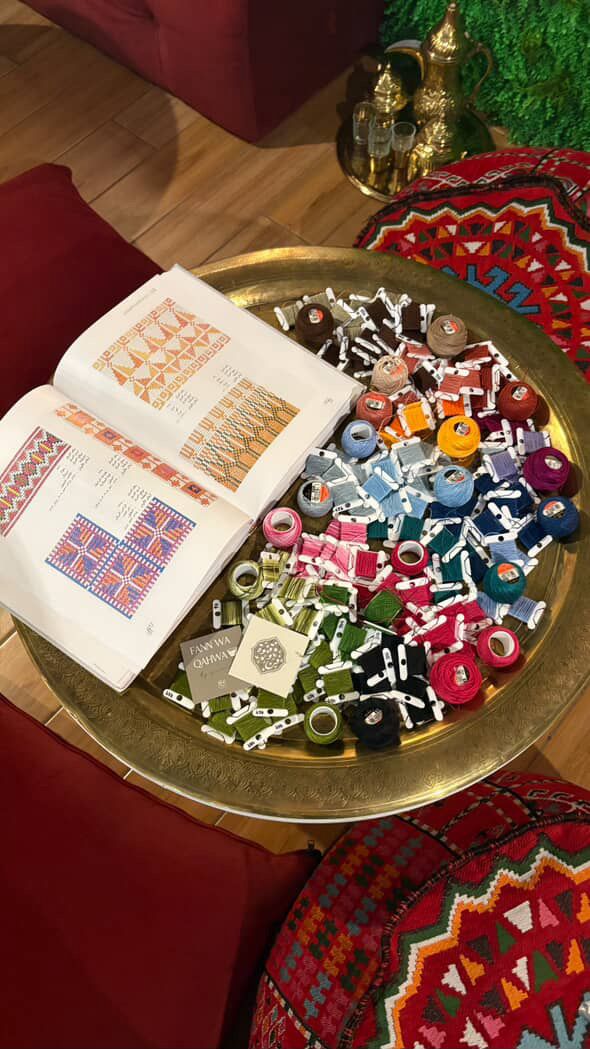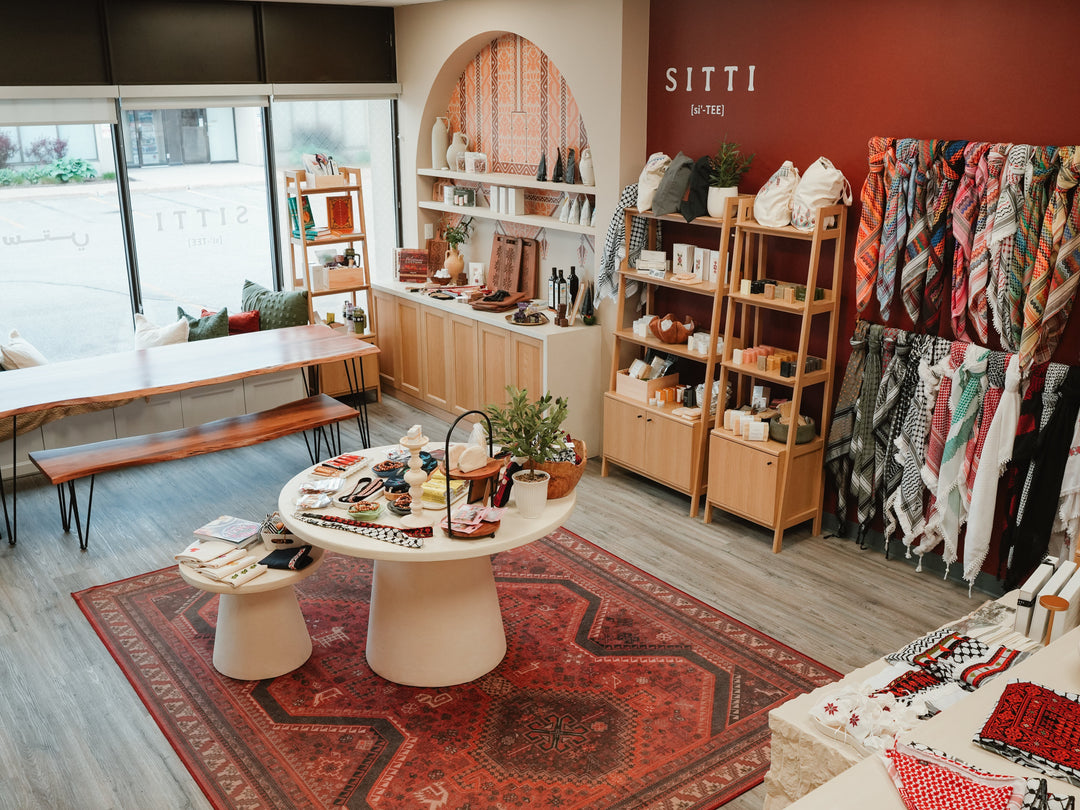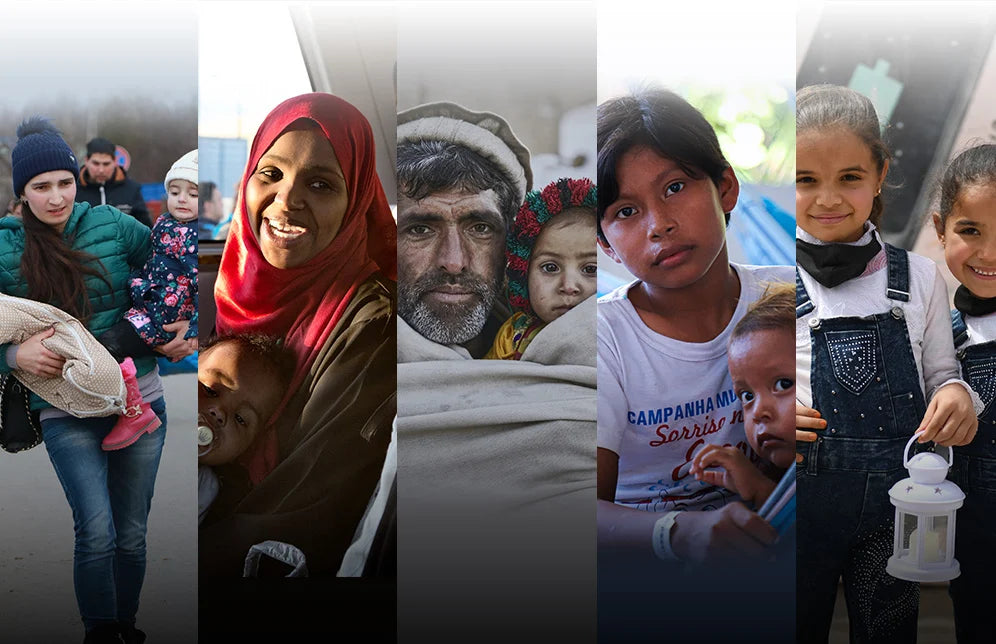Sips with Sitti: S1 E4: "Taking Our Health Into Our Hands" w/ guest Shireen Khamees!

“One in five – 22.1 per cent – of the adult population in conflict-affected areas are affected by mental health issues. That baseline is around two to three times higher than the level in people at large, according to other studies. “- Noora quoting WHO study on mental health problems at conflict-affected areas.
“Mental health for us, for a long time, [has been] very closely tied to financial and socioeconomic status of people in a community. There are so many stressors that come with the refugee experience, there are so many things that are out of our control, regardless of how we operate as a social enterprise. How do we provide an additional support system that goes beyond the workplace?” Jackie raises the issue of mental health in displaced communities and how social enterprises choose to address them outside of wages.
“There [are] high rates of depression in refugee communities, correlated to the pressure on the community [due to the] high unemployment rate and marginalization in general. We can’t ignore the bubble they’re in. We can’t ignore the fact that at the end of the day they are in [a] very difficult situation, often overcrowded homes, or homes that need a lot of work. Health [is] often put as a sideline, not as a priority.” Noora examines how refugees deal with their health and wellbeing under their hard living conditions.
“2020 phase 1 Sitti SRI Survey findings: women who are sole income-earners are overall experiencing a more difficult time achieving self-reliance than households with dual incomes or male figures being the primary income earners.” Noora on some of Sitti’s impact report findings, regarding the differences in income based on gender at Jerash Camp.
“Now that we’re equipped with the information, we should hold ourselves accountable as a social enterprise. It’s one thing to have the conversation and the open dialogue, but it's a whole different thing to structure a system within your organization to use this information [and apply it].” Jackie discusses the SRI survey and a social enterprises’ responsibilities to displaced communities’ health and wellbeing.
“We don’t want to just be a vehicle, to just provide employment opportunities [to the refugee community], which is something we’re so proud of...but also noting, if they’re not well, if their mental state is not there, then what are we doing as a community and as a social enterprise in general?” Noora on the importance of taking care of team members’ mental health and wellbeing in order to be able to keep going.
“When we thought about bringing Shireen, this was actually a request from the women. Sometimes when we’re working with marginalized communities we forget that they do have the ability to use their body as a tool to let their emotions out.” Noora on how our team members in Jerash Camp started the initiative of the recent health and wellbeing retreat.
“When I was first invited to do the workshop, I was really skeptical, but then I was amazed by the level of openness. [The women] were so eager, and I felt that the experience was healing for me as much as it was for them.” Shireen Khamees (Q: Tell us about your experience with the women. What you did you expect at first and what you actually found?)
“At first, I met Safiah to ask her about the women and their ages and lifestyles, after she explained everything about what they’re dealing with, and how on top of regular social issues, financial issues, and then COVID, and financial issues related to COVID, and then health issues, and the loss of Um Al Abed...taking all of that in, I was a bit terrified. [I didn’t know] if I will be able to hold space, because they seem to have been gone through a lot.” Shireen Khamees talking about how she was introduced to the women.
“We live in a society where we’re so cut-off from our body. Sometimes when you’re very anxious you even feel you’re not in your body anymore. So, when we do these sort of in-body practices, we’re directing all the energy back down into the earth, so it goes back to your body.” Shireen Khamees (Q: How does paying attention to our bodies help relieve pain?)





Leave a comment